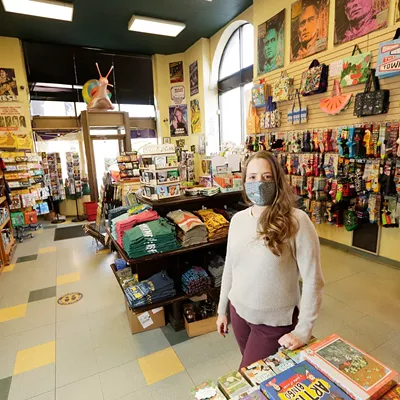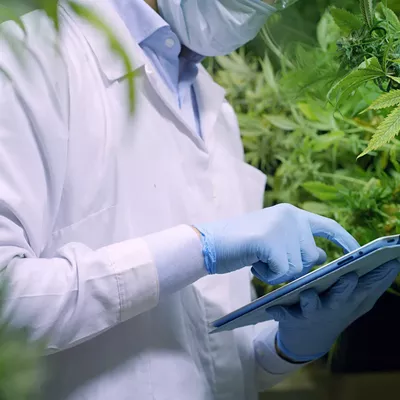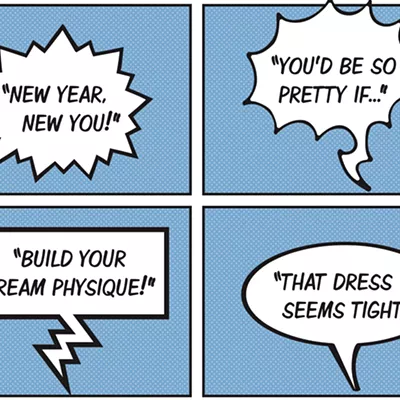I have tried to become fluent in the language of the Nez Perce, NimipuutÌmt. It is not the language of my ancestors, the Southern Ute, but it is the language of the landscape I find myself in, the deep gorges and rolling hills of West Central Idaho, the Snake and Salmon river breaks.
I wanted to learn Nez Perce for a myriad of reasons, but most important to me was to learn the names of flora and fauna, that I might greet them by those names, hoping that by doing so, I might help to repair something that was broken when English was forced upon them, upon us.
But without practice and daily classes, the year I took for Nez Perce language, is leaving me. I remember only salutations, the word for "relative," one prayer. I recite the greetings as I walk the traditional landscape of the Nez Perce, the Nimiipuu. Hello Relative, I say to the fir tree. Good Morning, Relative, to the trillium. Good Evening, Relative, to the robin, the mule deer, the sun. Having lost the memory of their individual names, calling them relative seems a good, if not better, choice. They are, after all, relations, and a greeting of any kind is an acknowledgment. An acknowledgment of shared aliveness, of spirit, of appreciation, and, of course, our shared brokenness. Relative in its simplest is defined as something connected, relevant or dependent on something else.
Now I find myself in a new landscape. We all do. That of the coronavirus. And it also begs learning and relearning of a language. What before we may have said with a hug, a handshake, a fist bump, or a buss on the cheek, we are now forced to say with words and/or facial expression, alone.
My sister, a respiratory therapist in Denver, Colorado sent me a message last night that summed up her frustration: It is the hardest conversation I've had to have [with my patients]... And worse they hear it from a pair of desperately concerned eyes through a plastic shield of someone trying to show empathy behind layers of protective measures. These patients have to deal with [coronavirus] alone in their isolation rooms with no loved ones and friends to hold their hands … then there's the overwhelming feeling of fear and guilt as you try to reach out to hold the hand of your scared, crying patient, but pull back instead because in your head you think “maintain your precautions and boundaries...” I will be forever be changed by my interactions with the sick and scared over the last several days. I will never be comfortable being this uncomfortable.
Those in the health care field see every patient as a life they are obliged to save. Most, like my sister, do it with a level of care and empathy that is unconditional, as if each patient were a beloved relative.
The day after our town began to react to the news of the virus, I was at the grocery store buying, like everyone else, that which I thought I might need. The faces of my community members were grim, dull, anxious. News is that people from out of town bought us out of supplies, snowmobilers were driving their sleds on closed ski hills, and a coronavirus Facebook page, set up to help people in our county, was filling with brutal, threatening, and racist comments. I just wanted to be helpful, to reach out, the administrator of the page wrote. People disconnected, left the group, lost valuable information and fellowship. Fear often makes us react in unusual ways, the harshest and most unnecessary of these is cruelty. It translates in any language as unkindness. Something we need less of these days.
Yesterday we hiked the Salmon River Breaks near Lucille. Two Golden Eagles kept watch over us from a sky uncut with contrails. Good Morning, my relatives. A dozen mule deer stood on a ridgeline lit and warmed by afternoon sun. Good Afternoon, my relatives. And from somewhere in the distance, a canyon wren called. I dug into memory and found the Nez Perce prayer, and from a mountain overlooking Slate Creek, I recited it. For all my relatives. ♦
CMarie Fuhrman is the author of Camped Beneath the Dam: Poems (Floodgate 2020) and co-editor of Native Voices (Tupelo 2019). She is the 2019 recipient of the Grace Paley Fellowship, a 2019 graduate of the University of Idaho's MFA program, a regular columnist for the Inlander, and an editorial team member for Broadsided Press and Non Fiction editor for High Desert Journal. CMarie resides in the mountains of West Central Idaho. Visit her website cmariefuhrman.com.























